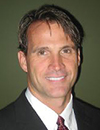
Five Key Stages of Your Property Insurance Claim(s)
By Robert E. Cote Jr. / Published December 2018

Sometimes negotiating the maze of insurance claims can be frustrating and confusing. Your primary guide is your claim adjuster. In making an insurance claim, there are five important steps for your community association to take.
Recognizing you have a claim: In all my 25-plus years in the insurance business, the single most important part of an insurance claim is documentation and presentation. However, you must recognize first that you have a covered claim to begin with and that it exceeds your deductible amount. Typical damages from covered perils may include water, wind, fire, or any other damage that is named under the section of the policy called “covered causes of loss.” Deductibles can usually range from a few thousand dollars to tens or hundreds of thousands of dollars, depending if the damage is from a windstorm or other event.
Documenting the damages and reporting: Documentation of your claim may include pictures of any damage, emergency service work, temporary repairs, permanent repairs, invoices of any related work, contractors, and even the association employee’s labor. As soon as possible, call your agent and or your carrier to report your claim(s). The policy requires “prompt notice,” which is a required condition stated in every policy as to not hinder the carrier’s ability to properly inspect damages, control and oversee the claims process, or prejudice the claim.
Negotiations with the carrier’s adjuster: Most policyholders are of the belief that what the carrier says and pays is the end-all. However, the policy has provisions that can help you negotiate with the carrier for the fairest settlement. Prior to exercising these options, you can attempt to work up a settlement with the adjuster. If that fails, you can ask for the desk examiner or claims manager to see if they are more reasonable. These other policy options may include mediation (a non-binding agreement unless the settlement docs are executed), an appraisal (usually the best option with the right appraiser and umpire in place), or hiring an attorney in order to sue the insurance carrier.
Settlement: When and if a payment is made, it will typically be paid on an Actual Cash Value (ACV) basis or possibly Replacement Cost Value (RCV). By state law, the insurance company can pay the ACV and then pay the difference of the ACV and RCV when and if the work has been completed. Additionally, the carrier’s payment will include the parties of interest, such as the named association, lien holders, and the public adjuster or attorney, on any and all checks issued.
Commencing with repairs: Most insurance claim damages remain unrepaired until the claim is settled. This is usually the best way to go about the claim, and the reason for this is for the parties involved to see the damages. Pictures do not translate on paper as does viewing the actual damages in person. This is not always the best option, especially for associations, and this is why documentation by taking pictures or even videos is a good way to prove damages whether repairs are done sooner or later.
Those are the basics of how the claims process works, and there can be many twists and turns that have not been mentioned here, complicating the process.
Adjusters: There are basically two choices when proceeding with your claim—using your insurance company’s adjuster or a public adjuster, and there is a significant difference. Insurance company adjusters are employed by insurers and therefore work on their behalf. Public adjusters are typically former claims adjusters who have worked as an adjuster for one of the major insurance companies and have now decided to serve the public with their skills. Florida public adjusters can either work for a public adjusting firm or freelance. They work on behalf of the claim holder, leave no stone unturned, level the playing field, and maximize your results.
Robert E. Cote Jr.
Owner, Property Loss Consultants
Robert E. Cote Jr. is the owner of Property Loss Consultants, founded in 2001. After nine years of working and handling various claims throughout the country with the insurance companies, Rob saw the need for representation of the insured public. Throughout the states of Florida and New Hampshire, Rob acquired licenses and credentials to professionally represent policyholders of homes, condominiums, businesses, boats and airplanes, ensuring that his clients are relieved from the burden and paid fairly for all the coverages their policy affords. No claim is complete until his clients are completely satisfied with the outcome. For more information, call (954) 205-4455 or visit www.hurricaneclaimadjuster.com.


